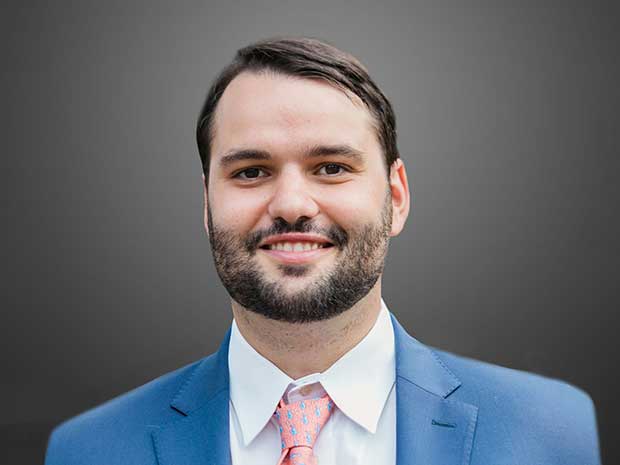The Court of Appeals for the 11th Circuit reversed a lower court ruling and upheld the application of section 1341 in Mihelick v. United States, No. 17-14975, 2019 BL 223537 (11th Cir. June 18, 2019). The District Court for the Middle District of Florida previously held against the taxpayer, finding that a payment made through a separation agreement did not qualify for section 1341 remediation. The Circuit Court reversed the decision in Mihelick v. United States, No. 2:16-cv-741-FtM-38MRM, 2017 BL 364387 (M.D. Fla. Oct. 10, 2017). The Circuit Court’s decision relied on substance over form principles to uphold the taxpayer’s deduction for a payment made to a co-obligor rather than a direct payment to an obligee. The Circuit Court ruling appears to support a more liberal interpretation of section 1341 to effectuate its remedial purpose.
Background
The appellant, Nora Mihelick, and her ex-husband Michael Bluso earned and paid taxes on income from their business. After the couple divorced, to settle a lawsuit, the couple agreed to return $600,000 of the income they had received without admitting any wrong doing. Thus, the couple had paid income taxes on $600,000 they ultimately did not receive.
Mihelick and Bluso agreed that the $600,000 was a marital liability and should be split evenly, consistent with their separation agreement and Ohio law. Accordingly, Bluso returned the full $600,000, and Mihelick reimbursed him for her half.
Bluso recovered the taxes he had previously paid on the $300,000 that was included in income, using section 1341. Section 1341 allows taxpayers to take a deduction for an item that he/she included into income for a prior taxable year because it appeared that the taxpayer had an unrestricted right to such item. When Mihelick made the same claim for the taxes she had paid on her $300,000, the IRS denied her claim, arguing that she had made a payment to Bluso rather than returning the money directly, and thus could not avail herself of section 1341.
The Court of Appeals for the 11th Circuit found in Mihelick’s favor, emphasizing that section 1341 was created for the purpose of putting the taxpayer in the same position she would have been had she not included the item as gross income in the first place.
The Circuit Court’s reasoning
The Mihelick Court notes four elements for relief under section 1341:
- The item of income must have been included in a prior year’s gross income “because it appeared that the taxpayer had an unrestricted right to such item” per section 1341(a)(1)
- The taxpayer must have later learned that she actually “did not have an unrestricted right” to that income per section 1341(a)(2)
- The amount must exceed $3,000 per section 1341(a)(3)
- The amount must be deductible under another provision of the Code. See Fla. Progress Corp. & Subsidiaries v. Commissioner, 348 F.3d 954, 959 (11th Cir. 2003)
The first three elements were easily satisfied; however, the IRS disputed that Mihelick’s payment was deductible under another provision of the Code. The District Court previously held that Mihelick failed the fourth element identified above because section 1341 does not itself give rise to a deduction, and the District Court found Mihelick’s payment to Bluso did not qualify as a deduction under section 165(c)(2). The District Court stated that Mihelick “paid Bluso under a private settlement agreement and did not make the payment because of any personal obligation resulting from the [litigation with the company].”
The Circuit Court found that in fact Mihelick qualified to deduct her payment under section 165(c)(1), allowing deductions for an individual’s uncompensated losses incurred in a trade or business. The Court cited Butler v. Comm’r, 17 T.C. 675 (1951), noting that a corporate officer may deduct the amount to settle a bona fide suit alleging mismanagement by a fiduciary, because the settlement arose from his trade or business of acting as an officer to the corporation. The Circuit Court applies the logic of Butler, stating that the liability arose from Bluso carrying out the trade or business of service as a fiduciary and employee of the business.
In the case, Mihelick was presumed to have contributed equally to the production and acquisition of the income, and also was presumed to have contributed equally to the ensuing $600,000 liability. Because she paid for half of the liability, and that liability was deductible under section 165(c)(1), the Circuit Court found that Mihelick was entitled to take a deduction for her payment. Although Mihelick did not directly repay the money to the company in form, the Circuit Court notes that the substance of the transaction clearly represents repayment within the contemplation of sections 1341 and 165.
Takeaways
The Court of Appeals for the 11th Circuit appears to be apprehensive to apply a relief provision rigidly, the purpose of which is to restore the taxpayer to the position she would have been in if not for the over‑inclusion of income. The ruling also confirms that the provision applies to ex-spouses who may have to contribute to satisfying the repayment. Taxpayers who have to return income they paid taxes on should consult a tax professional to determine whether they may qualify to recover the taxes paid on the returned income.



